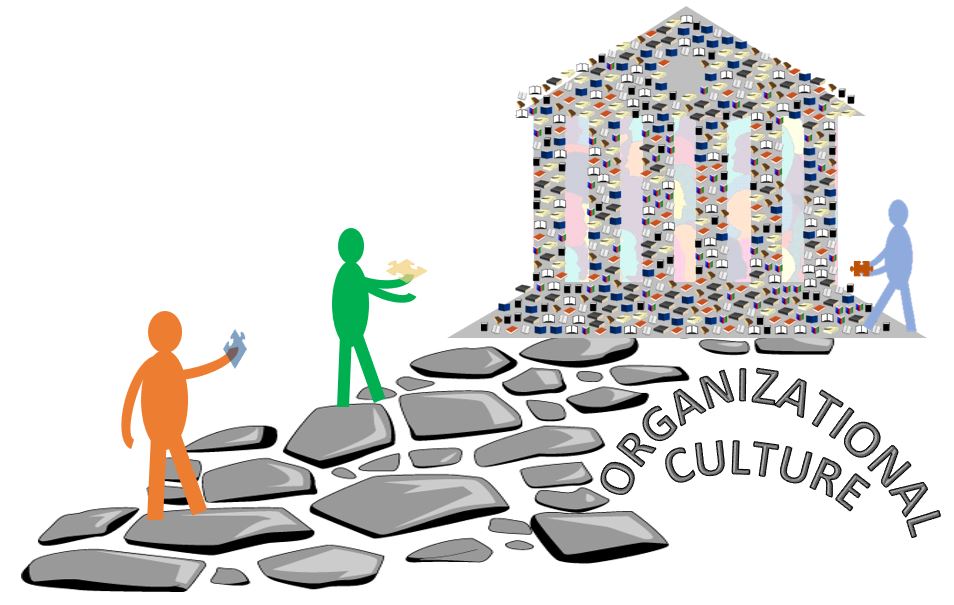4.3 The Learning Organization

One area of focus, when discussing learning for work is the educational organization. As previously discussed, it fosters growth and learning. The interplay of the learning organization and its organizational culture will now be considered. Organizational culture is comprised of the philosophical, administrative, and stylistic characteristics of a learning organization. According to Smith, Babich, and Lubrick, there are five components of organizational culture in a learning organization[10]:
- Hiring philosophy: leaders aligning philosophies with hiring individuals
- Institutional policies: directives of government and society influencing organizations
- Budgeting process: budgeting specific programs within the organization
- Rewards: tailoring learning towards competency through goal attainment
- Decision-making style: sharing important ideas to make effective decisions
Through these culture-changing markers, learning organizations set the tone for their cultures. What comes next is the competency of an individual or group to enhance learning through these factors relating to the concept of leadership and management.
Within a learning-organizational framework, leadership is defined as a social relationship with the express consent of reaching and attaining certain goals within an organization. Management is defined as the planning, organizing, and directing of activities within an organization, with resources to obtain goals[10]. Both leadership and management are different from each other, but they are inextricably connected at the heart of the learning organization. With a strong culture guiding the ship of the organization, leadership and management are the workers on the ship ensuring that the boat is guided away from danger. Therefore, the connection between leadership and management within a learning organization is that organizational culture is nothing without effective and competent individuals who are both good leaders and managers.
The following video is a TedTalk in Wilmington, Delaware with a speaker, Benjamin Riley. He defines the learning culture and goes deeper into an understanding of an experiential relationship to teaching and learning.
Developing Mastery Towards Learning
When referring to learning organizations, the organizational culture around developing mastery in learning moves towards obtaining goals and objectives for the organization. This was first instituted by Senge, and his theory of mastery that shares the characteristics of tangible and abstract aims and goals toward learning; essentially, building an ethos around learning[11]. Taking a more pragmatic approach, Ambrose et al. describe the principle of learning that involves a complex connection of skills to be used so that goals and objectives are achieved in the classroom through a balance of expertise and knowledge when to apply certain skills in certain situations[12].
A real-world example would be a nurse with the skills required for this profession. A nurse needs to be adept with practical skills, such as drawing blood, administering shots, reading EKG’s, and in the areas of formal skills, completing clerical work. In addition, nurses need to be proficient in the skills of ethics, compassion, communication, and stress management in order to offer service to people in need. Developing mastery for learning, either inside of the learning organization or a corporation, requires the abstract and practical components of skills to be used effectively in various situations. The interdisciplinary factors that combine the many skills to many situations within the organizational structure crystalize the understanding of developing mastery towards learning.

